
🧔♂️ Ka'b al Ahbar-hater, Idol-smasher. I do research. Sometimes I hit, sometimes I miss.
Enraged hadith absolutists call me a cockroach 🪳
How to get URL link on X (Twitter) App


 To wrap things up, there is a story of a maidservant (jariyah) who slaughtered a sheep which was about to die, and the Prophet told people they should/could eat the meat.
To wrap things up, there is a story of a maidservant (jariyah) who slaughtered a sheep which was about to die, and the Prophet told people they should/could eat the meat.
 So, when I see Sufyan from Zuhri, I'm pretty confident that: "the hadith really comes from Zuhri".
So, when I see Sufyan from Zuhri, I'm pretty confident that: "the hadith really comes from Zuhri".



https://twitter.com/DrShadeeElmasry/status/1659565686719496194Abd-alMuttalib: "By Allah, we do not want to fight [Abraha]. So far as this House (the Ka'bah) is concerned, it is the House of Allah; if Allah wants to save His House, He will save it, and if He leaves it unprotected, no one can save it."


 2. From Abdallah ibn Dinar, from Ka'b al Ahbar (the rabbi) when he was telling tales in Damascus, deeds are presented on every Monday and Thursday:
2. From Abdallah ibn Dinar, from Ka'b al Ahbar (the rabbi) when he was telling tales in Damascus, deeds are presented on every Monday and Thursday:
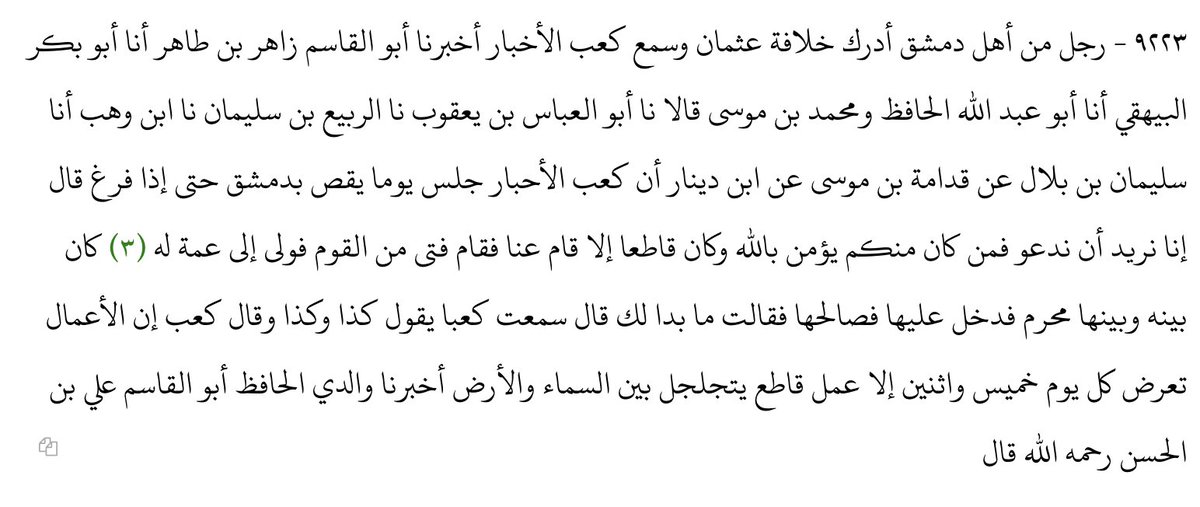


 2. The same hadith is narrated by a major student of Abu Hurayra, Saeed ibn al Mussayib, but without attributing to Abu Huraira, in a mursal form.
2. The same hadith is narrated by a major student of Abu Hurayra, Saeed ibn al Mussayib, but without attributing to Abu Huraira, in a mursal form.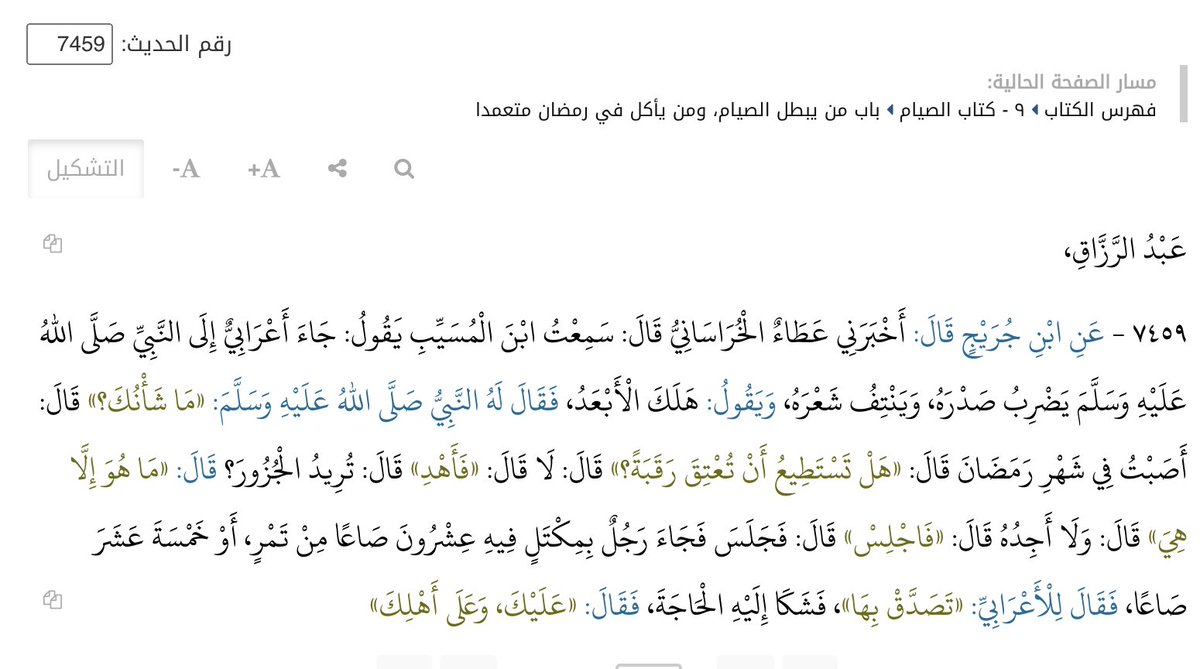
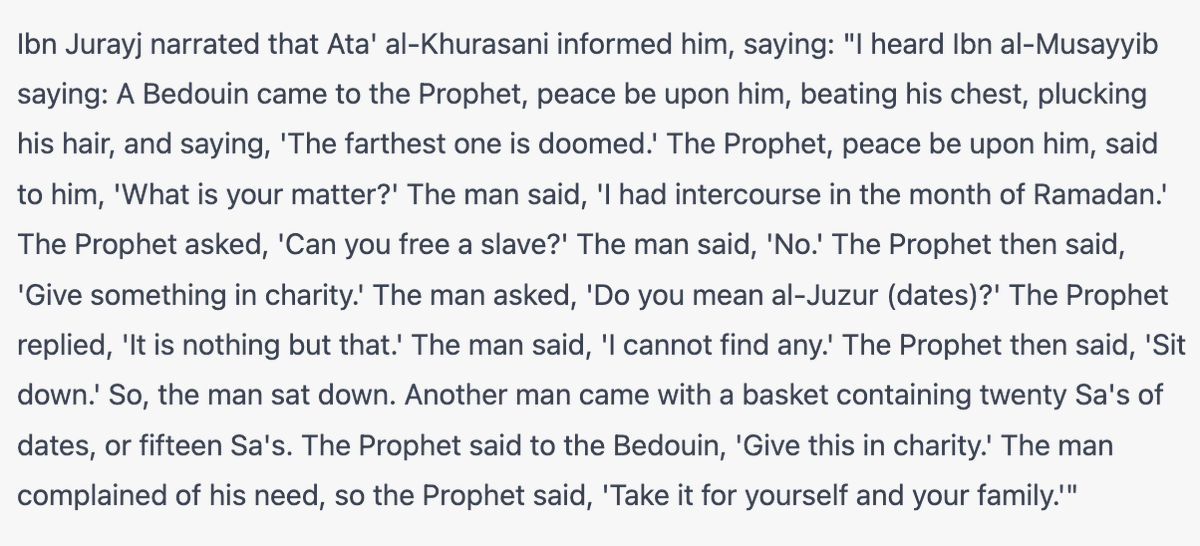

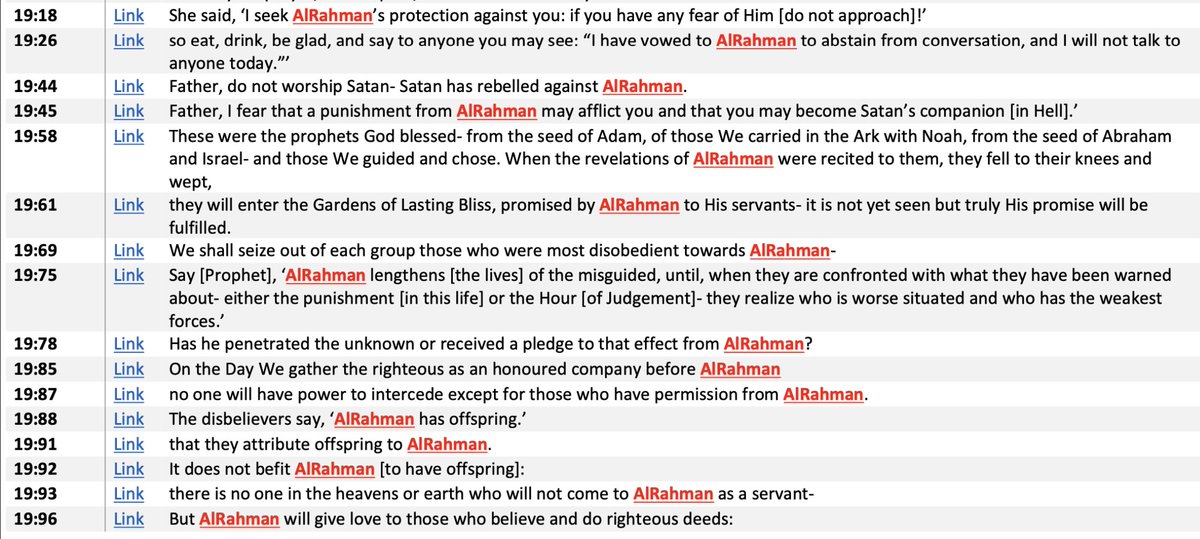
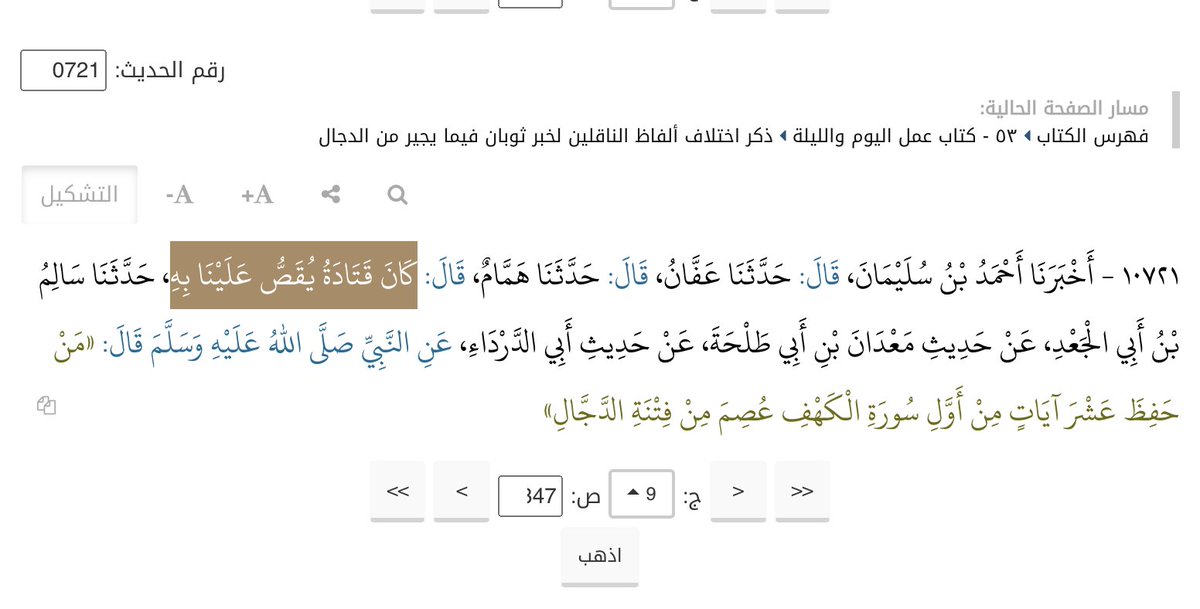
https://twitter.com/JonathanACBrown/status/1612823435394031617
 Other context, showing us the relationship between these storytellers and the rulers:
Other context, showing us the relationship between these storytellers and the rulers:
